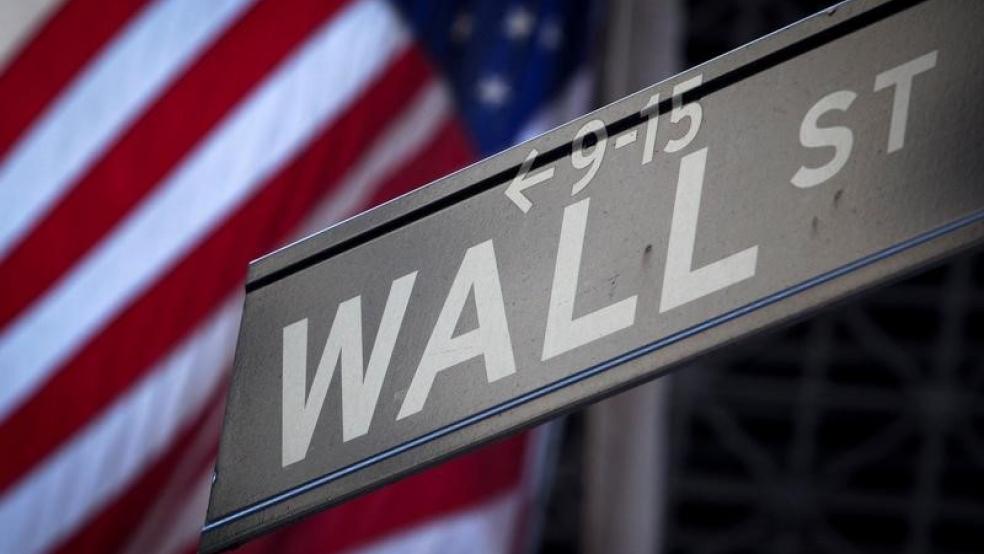After a campaign spent railing against his opponent’s connections to Wall Street banks and promising to stand up for ordinary Americans against the moneyed interests holding them back, President Trump is preparing to take major regulatory action in the financial services field. But it may come as a surprise to his voters exactly where his focus will be.
On Friday, Trump is expected to sign an executive order launching an effort to roll back regulations associated with the Dodd-Frank Act, a post-financial crisis law that created mechanisms to prevent the sort of out-of-control risk-taking and predatory lending practices that contributed to the housing bubble and the Great Recession.
Over the years, Dodd-Frank, with its more than 22,000 pages of regulations, has helped accelerate the consolidation of the banking industry. The New York Times reports that the number of community banks in the US shrank 14 percent between 2010 and 2014.
Related: No, Trump Did Not Just Roll Back Sanctions on Russia
But the assault on Dodd-Frank isn’t the only thing the new administration is planning. Trump will also order the Labor Department to halt the implementation of the so-called “Fiduciary Rule,” a new regulation that requires retirement plan advisers to recommend the products that best suit the needs of their clients.
Under current rules, which the industry is fighting hard to retain, retirement planners are free to steer clients toward investments that carry higher commissions, even though they are aware of other products that would provide better value for their clients.
Further still, a Republican-led Congress, cheered by the prospect of having one of their own in the White House prepared to sign off on their legislation, seems poised to start asserting itself in the oversight of the nation’s financial regulators.
On Thursday, the Financial Times newspaper published a January 31 letter that Rep. Patrick McHenry (R-NC), the vice chairman of the House Financial Services Committee had sent to Federal Reserve Board Chair Janet Yellen.
Related: Trump May Try to Weed Out Immigrants Who Cost Taxpayers $279 Billion Annually
In it, McHenry said that it is “unacceptable” that the US central bank, which has wide supervisory authority over the financial services industry, “continues to participate in international forums on financial regulation.”
The Fed, along with the central banks of most developed countries in the world, has long negotiated with international groups including the Basel Committee on Banking Supervision, the Financial Stability Board, and the International Association of Insurance Supervisors. Bank regulators see these groups as necessary to assure that the global financial system works smoothly and that the industry’s major players operate according to a general set of guidelines that regulators understand.
McHenry said that the requirements imposed on American businesses by these international bodies are overly burdensome and their negotiations too opaque.
“The Federal Reserve must cease all attempts to negotiate binding standards burdening American business until President Trump has an opportunity to nominate and appoint officials that prioritize America’s best interests.”
Related: Mark Cuban -- Trump's Immigration Ban Is Bad for Business
At least with respect to some elements of banking regulation, McHenry seems to be confused. US regulators are, by and large, far more strict than their foreign counterparts. McHenry identified bank capital requirements in particular -- rules dictating how much cash and liquid assets banks must hold against unexpected losses -- as something that foreign regulators have forced on US banks. In fact, it has for many years been US regulators who demanded higher capital requirements, often frustrating their European counterparts in particular.
The administration is also expected to join Congressional Republicans in their efforts to defang the Consumer Financial Protection Bureau and to roll back authority given to federal regulators meant to facilitate the “orderly liquidation” of banks and other financial services firms that fail.
That Trump, who sold himself to voters as the champion of the little guy, should be granting big banks so many of the things on their wish list just two weeks into his term might seem surprising, but there has been no shortage of clues about where the administration was headed.
Related: Trump’s SCOTUS Nomination: One Way or the Other, This Ends Badly
One of Trump’s favorite targets on the campaign trail was Hillary Clinton’s connections to the investment bank Goldman Sachs, but he has since populated his administration with Goldman alumni and other Wall Street veterans. The architect of the regulatory rollback is White House National Economic Council Director Gary Cohn, the former president of Goldman.
In an interview with The Wall Street Journal, Cohn signaled that there are good times ahead for financial services firms chafing under increased regulation since the financial crisis. Today’s executive orders, he said, are “just a table setter for a bunch of stuff that is coming.”





